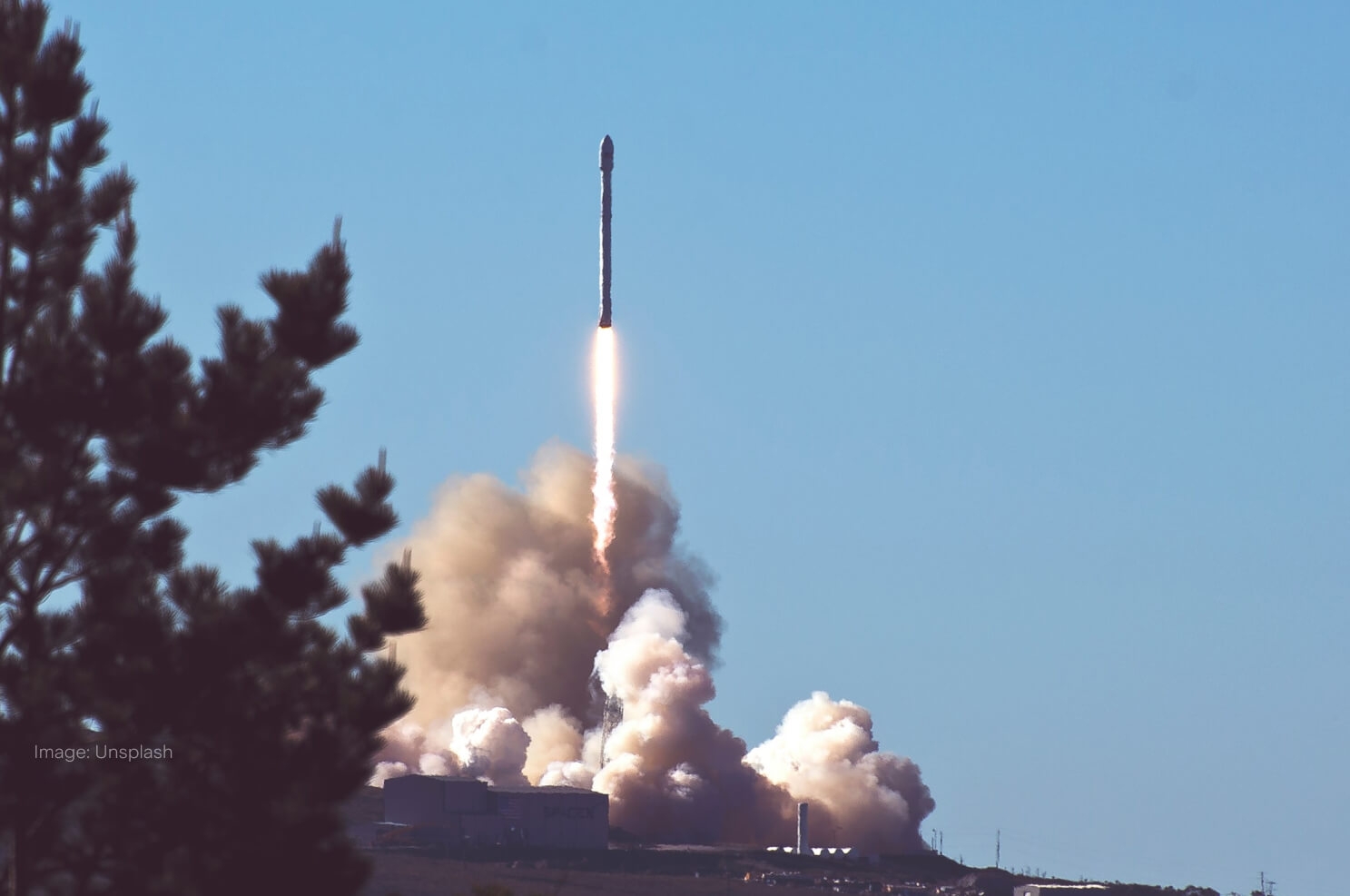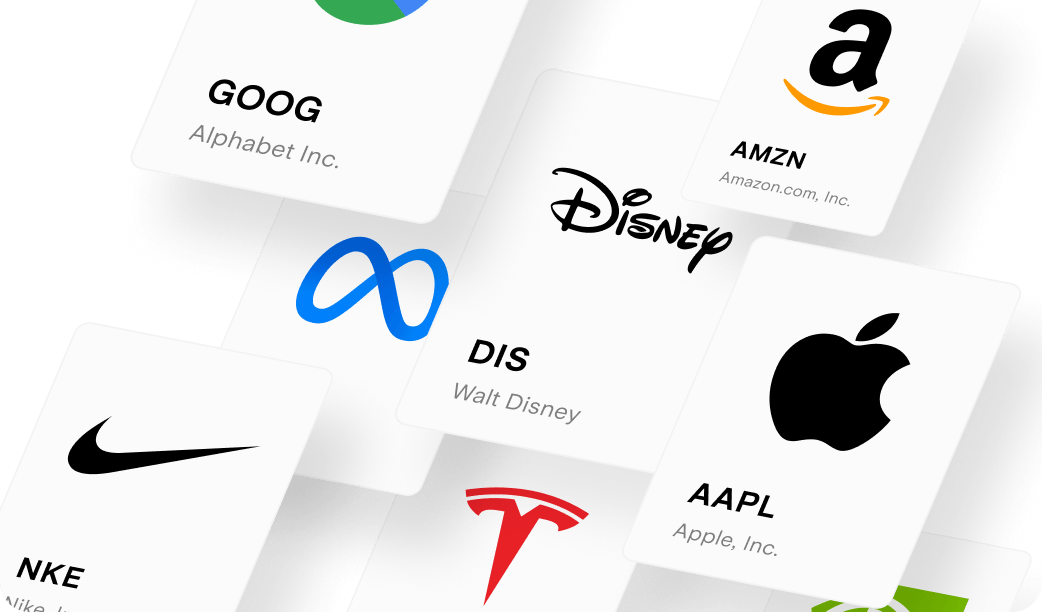
SpaceX IPO: How to buy SpaceX shares?
Elon Musk’s brainchild SpaceX is on track to redefine space travel and the stock market. A potential US$1.5T IPO would make it one of the biggest offerings in history and make Musk the world’s first trillionaire. In this guide, we’ll walk you through everything you need to know about SpaceX and how to buy shares in the company when it goes public.
What does SpaceX do?
SpaceX or ‘Space Exploration Technologies Corp.’ is a private aerospace company founded by Tesla ($TSLA) CEO Elon Musk in 2002.
Its core business is designing, manufacturing, and launching rockets and spacecraft with the goal of reducing the cost of space travel and enabling life beyond Earth. SpaceX provides orbital launch services for governments and commercial customers using its Falcon 9 and Falcon Heavy rockets, both known for their reusable first stages.
The company also develops human spaceflight capabilities through its Dragon spacecraft, which transports astronauts and cargo to the International Space Station under NASA contracts. Beyond launches, SpaceX operates Starlink, a rapidly expanding satellite internet network aimed at delivering high-speed broadband globally.
Looking ahead, SpaceX is developing Starship, a fully reusable spacecraft intended for missions to the Moon, Mars, and deep space, as well as for high-capacity satellite deployment.
How does SpaceX generate revenue?
Elon Musk has said that SpaceX is on track to record around US$15.5B in revenue in 2025, driven by continued growth in Starlink and launch services.
In 2024, the firm is estimated to have generated around US$14.2B in total revenue, up significantly from prior years. Starlink was the largest contributor with roughly US$7.7B of that total, while launch services and other segments made up the rest.
SpaceX generates revenue from several primary business lines:
Launch services
SpaceX earns fees by launching satellites, cargo, and astronauts into space for commercial customers, governments, and military agencies. Major clients include NASA, the U.S. Department of Defense, and private satellite operators. Falcon 9 and Falcon Heavy launches make up most of this revenue.
Human spaceflight and cargo missions
Through NASA contracts, SpaceX is paid to transport astronauts and cargo to and from the International Space Station using its Crew Dragon and Cargo Dragon spacecraft.
Starlink satellite internet
Starlink is a major and rapidly growing revenue source. SpaceX sells broadband internet subscriptions to consumers, businesses, maritime operators, airlines, and governments worldwide.
Government and defense contracts
SpaceX receives long-term contracts for national security launches, satellite deployment, and space infrastructure projects from U.S. and allied governments.
Rideshare and satellite deployment services
Smaller satellite operators pay SpaceX to launch payloads via rideshare missions, lowering costs while generating recurring launch income.
While Starship is still in development, it is expected to become a future revenue driver through large-scale satellite launches, lunar missions, and deep-space transport once operational.
Note: Details on revenue segments and profitability will be made public once SpaceX files an S-1 ahead of its IPO.
What is the SpaceX IPO date?
As of now, SpaceX has not officially set or announced a definitive IPO date and no Securities and Exchange Commission (SEC) registration or formal timetable has been published by the company.
However, multiple reputable financial news reports and company signals point to a likely IPO in mid-to-late 2026.
One of those sources is Musk himself, who responded to an article on why SpaceX was likely to go public soon from ArsTechnica Space Editor Eric Berger. ‘As usual, Eric is accurate,’ said Musk on X.
SpaceX CFO Bret Johnsen also reportedly told employees in a 12 December meeting that the company could go public in 2026.
The initial public offering could raise well over US$25B to US$30B, potentially at a valuation of around US$1.5T.
What is the ticker symbol for SpaceX?
The ticker symbol for SpaceX has not yet been disclosed since the company hasn’t officially filed for an IPO. Industry watchers largely believe that the ticker will contain the letter ‘X’ given Elon Musk’s affinity for the brand.
A poll on the prediction market platform Polymarket suggests that popular speculative contenders among retail traders include $SPAX, $X, $SEX, and $MARS. It’s important to note that none of these are official ticker symbols – they merely represent market speculation and betting activity, not confirmed information from SpaceX.
What is the expected SpaceX IPO share price?
The expected share price for SpaceX’s IPO has not yet been officially announced as the IPO date and final pricing remain unconfirmed.
SpaceX has recently set a secondary share sale price at around US$420 per share, which implies a private valuation around US$800B.
However, many analysts believe that SpaceX will debut with a US$1.5T valuation. Assuming the firm offers 1 billion shares, it would put the share price at US$1,500. Or, if the firm offers 2 billion shares, the implied share price would be US$750.
Valuation | Shares outstanding | Implied price per share |
|---|---|---|
US$800B | 1 billion | US$800 |
US$800B | 2 billion | US$400 |
US$1T | 1 billion | US$1,000 |
US$1.5T | 1 billion | US$1,500 |
US$1.5T | 2 billion | US$750 |
How to buy shares in SpaceX?
SpaceX is not currently listed at this time. When the firm completes an IPO, you can follow the steps below to buy shares in the company.
1. Open a stock investing account
If you want to buy SpaceX stock, you'll need to sign up to an investing platform with access to the U.S. markets. Lucky for you Stake has access to U.S. stock exchanges.
2. Fund your account
Complete an application with your personal and financial details. Fund your account with a bank transfer, debit card or even Apple/Google Pay.
3. Search for the ticker or SpaceX
Find the asset by searching for the company name or ticker symbol. Do your own research to ensure it is the right investment product for your own circumstances.
4. Choose an order type and buy the asset
Buy on any trading day with a market, limit or stop order. Look into dollar cost averaging to spread out your risk, which smooths out buying at consistent intervals.
5. Monitor your investment
Optimise your portfolio by tracking how the security performs with an eye on the long term. You may be eligible for dividends and shareholder voting rights that affect your shares.
Sign up in minutes and get access to this company when it enters the market.

Can you invest in SpaceX another way?
Since SpaceX isn't publicly traded, investors can't purchase shares in the company. However, there are other methods available if you would like to have exposure to the company.
- Become an accredited investor and buy shares directly
SpaceX is a privately held company so only institutions or accredited investors can invest in the company. Retail investors can qualify as accredited investors if they earn an average of US$200,000 or more per year, have US$1m or greater net worth, or otherwise have certain finance certifications. - Invest in a close-ended fund like DestinyTech100 ($DXYZ)
$DXYZ is an ETF that trades on the NYSE. SpaceX represents approximately 23.3% of the fund's portfolio (as of 30 September 2025), making it the largest single holding. The small fund began trading in March 2024, and also holds shares in OpenAI and Epic Games. - Invest in the ARK Venture Fund ($ARKVW)
This fund is managed by ARK Investment Management. This provides a unique opportunity for retail investors to gain exposure to high-growth pre-IPO companies. It allocates 7.43% of its assets to SpaceX, alongside smaller stakes in X.AI (3.6%) and Anthropic (3.22%) (as of 30 November 2025). - Buy shares in a publicly traded SpaceX competitor
Popular space stocks like Rocket Lab ($RKLB), Intuitive Machines ($LUNR) and AST SpaceMobile ($ASTS) stand to benefit from the success of SpaceX and its advancements in the industry.
Which ETFs have exposure to the space exploration industry?
1. Procure Space ETF ($UFO)
The Procure Space ETF focuses on investing in companies involved in space-related activities. This ETF aims to provide investors with exposure to the growing space industry, which includes satellite operations, space exploration, and other aerospace technologies.
2. SPDR S&P Kensho Final Frontiers ETF ($ROKT)
The SPDR S&P Kensho Final Frontiers ETF is an exchange-traded fund that focuses on companies involved in space and deep-sea exploration. The ETF comprises a total of 34 holdings, providing a diversified approach to investing in these sectors.
3. ARK Space Exploration & Innovation ETF ($ARKX)
The ARK Space Exploration & Innovation ETF is an actively managed exchange-traded fund that aims for long-term capital growth by investing primarily in companies involved in space exploration and innovation. It aims to invest at least 80% of its assets in equity securities of companies engaged in the space sector.
Who is underwriting the IPO?
SpaceX has begun what’s known as a ‘bake‑off,’ where multiple Wall Street banks pitch to be the lead advisor and underwriter on the potential IPO. This is a standard step before finalizing the underwriting syndicate for a public offering.
However, the firm has not yet selected or officially announced the investment banks that will underwrite its IPO.
Who owns SpaceX?
SpaceX is a privately held company, so its ownership is divided among founder Elon Musk, early investors, employees and private shareholders.
Musk is estimated to own between 40% to 50% of the company, making him the controlling shareholder. His stake gives him decision-making power over company strategy, funding, and potential IPO timing.
Private investors are estimated to own around 30% to 40% of SpaceX over several multi-billion dollar funding rounds since 2002. Key investors include Founders Fund, the venture capital firm managed by PayPal ($PYPL) and Palantir ($PLTR) co-founder Peter Thiel. Other notable investors include Andreessen Horowitz (a16z), Fidelity, Alphabet ($GOOGL) and Sequoia Capital.
How will SpaceX perform post-IPO?
SpaceX going public would arguably be the most widely anticipated IPO of our decade. Expectations around the company’s valuation are enormous, but reflective of SpaceX’s unique position within the space economy.
SpaceX dominates the commercial orbital launch market with reusable Falcon 9 and Falcon Heavy rockets. Its high launch cadence and cost efficiency make it a preferred provider for both governments and commercial satellite operators.
Starlink is SpaceX’s crown jewel business segment. It is rapidly expanding its subscriber base and generating recurring revenue, which adds a new, high-margin cash flow stream. It also provides recurring income beyond launch fees, which is a rare source of diversified revenue in aerospace.
The bull case for SpaceX would be a strong post-IPO performance as investors line up to gain exposure to one of the world’s most influential companies.
However, as we’ve seen in previous instances of high IPO valuations, shares could experience sharp sell-offs if the company fails to meet the financial benchmarks that Wall Street analysts use to define success.
SpaceX IPO details
Proposed ticker symbol | Undisclosed |
Company Name | SpaceX |
Exchange | Undisclosed |
Share price | Undisclosed |
Shares offered | Undisclosed |
We’ll update this article when more information becomes available.
🎓 Learn more: What is an initial public offering and how do they work?→
Disclaimer
The information contained above does not constitute financial product advice nor a recommendation to invest in any of the securities listed. Past performance is not a reliable indicator of future performance. When you invest, your capital is at risk. You should consider your own investment objectives, financial situation and particular needs. The value of your investments can go down as well as up and you may receive back less than your original investment. As always, do your own research and consider seeking appropriate financial advice before investing.
Any advice provided by Stake is of general nature only and does not take into account your specific circumstances. Trading and volume data from the Stake investing platform is for reference purposes only, the investment choices of others may not be appropriate for your needs and is not a reliable indicator of performance.
$3 brokerage fee only applies to trades up to $30k in value (USD for Wall St trades and AUD for ASX trades). Please refer to hellostake.com/pricing for other fees that are applicable.

Samy is a markets analyst at Stake, with seven years of experience in the world of investing, working across roles in private banking, venture capital and financial media. She has a Master’s degree in Finance and Data Analytics from The University of Sydney Business School.


